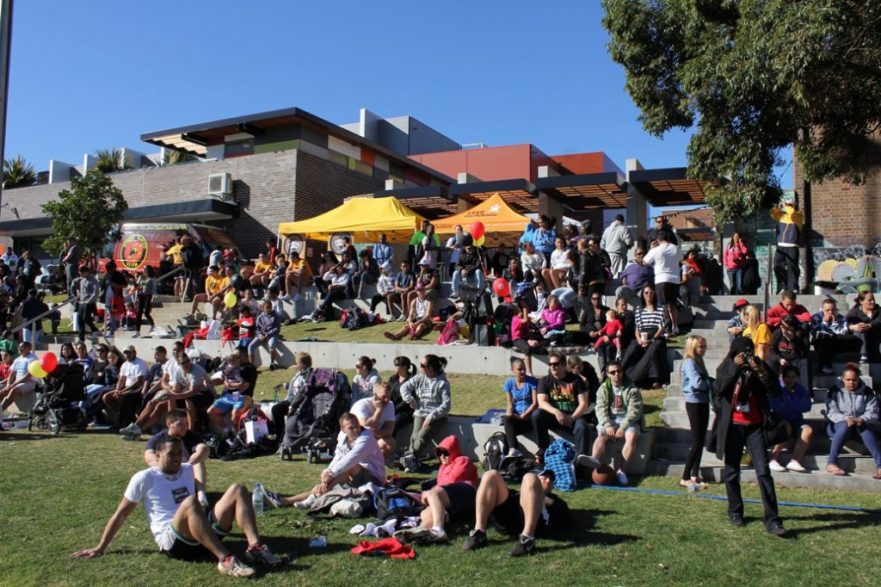This is the first blog post in a series by NCIE CEO Jason Glanville.
I wanted to take advantage of the period between National Reconciliation Week ( May 27-June 3 ) and NAIDOC Week ( July 1 – July 8 ) to start my Indigenous Innovation Blog Series and to begin to explore some of the ideas we have been knocking around at the National Centre of Indigenous Excellence (NCIE) about excellence and Indigenous innovation.
The NCIE is a deliberately ambitious marriage of practice and thought leadership that is changing the opportunity profile of a generation of young Aboriginal and Torres Strait Islanders and will be part of creating shared prosperity for all Australians.
This blog is part of our thought leadership that is all about generating new ideas and, hopefully, new conversations that will turn stereotypes of disadvantage into opportunities for excellence.
National Reconciliation Week and Constitutional Recognition
National Reconciliation Week (NRW) started on May 27th, the anniversary of the 1967 Referendum, and ends on June 3 – Mabo Day. This year is the 45thanniversary of the 1967 Referendum and the 20th anniversary of the Mabo decision. It is a time to honour and celebrate the leadership, bravery and innovation of Aboriginal and Torres Strait Islanders and other Australians working together to make Australia a fairer and more prosperous place for everyone. So much has changed since those landmark events but there is still a lot more work to be done which is why the focus of this year’s NRW is Let’s Talk Recognition, which turns our attention to the need to make the Australian Constitution more inclusive and fair.

While NRW is a chance to celebrate the contribution of all Australians to making positive change, as an Indigenous organisation, the NCIE is focussed on honouring the breadth and depth of the contribution of Aboriginal and Torres Strait Islander peoples to our national story.
Indigenous Innovation
Indigenous innovation is not new. The language may have emerged recently but the practice of innovation across Aboriginal and Torres Strait Islander communities has been central to our survival for generations. Unfortunately, innovation and excellence have been ignored as part of a narrative that focuses on a deficient Australia whose first nations peoples, the oldest continuous living culture on the planet, were and are systematically and unjustly subjected to gut wrenching, heartbreaking and completely unnecessary disadvantage. The lived daily experience of disadvantage and despair for too many of our people is a shameful modern truth. The reality and too often ignored counter truth is the extraordinary resilience, contribution and innovation shown by our communities to not only survive in the face of that disadvantage but to thrive by staying close to culture and adapting to the ever shifting expectations of them driven by the vagaries of prejudice, policy and the whim of the politics of the day.
Indigenous innovation has a lot to teach and a lot to share. There is an important conversation to be had between Indigenous and non-Indigenous social entrepreneurs and thought-leaders. We should be talking about Indigenous forms of organisation and collaboration while acknowledging the role of resilience and the importance of resistance. We need to be investing more time and energy into providing as much oxygen as possible to changemakers who value and understand the importance of listening and the fierce power of silence. We can support young Aboriginal and Torres Strait Islander people and their communities to use the language of innovation and honour it where it lives. Together we can use an emerging body of evidence of Indigenous innovation and success to push back against the far too prevalent racism that refuses to believe in Indigenous excellence.
– NCIE CEO, Jason Glanville 2012




